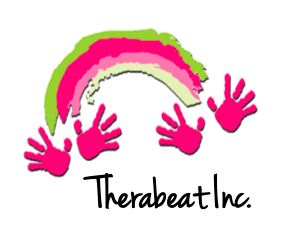Music is often referred to as a universal concept, as well as used as a tool to teach different subjects, languages, and social skills. Children with autism often have a difficult time expressing and verbalizing thoughts to others. This can lead to people making incorrect assumptions of levels of intelligence and understanding. Furthermore, this can create a barrier between children trying to create friends or students trying to help each other at school. This is just one of many reasons that the need for a greater understanding of neurodiversity and alternate forms of communicating is growing every day. Within the field of Music Therapy, clinicians are continuously studying ways that music drives change in the brain, and this research is applied daily to individualized session and treatment plans. The beauty of music is the opportunity it provides each individual to connect, as well as to express themselves through it. Extensive research and evidence-based studies have shown that when provided with Music Therapy services, children with autism are given the opportunity to express their individuality as well as connect with their peers. Children with autism benefit greatly from sensory experiences as they are trying to navigate their world. Being able to listen, feel, and even move to the music along with other techniques improves their development (Khyzhna, O., & Shafranska, K., 2020). Music therapy sessions, both individual and group, can be an important step in helping a child with autism develop and improve their social skills.
Group sessions allow clients to connect with one another and find their similarities. Some children will focus on the beat of a song while others may focus on lyrics instead. Regardless, this connection to music allows children the ability to look beyond differences and mentally and emotionally connect. The Art of Autism, a nonprofit organization that accepts submissions of various art forms in search of diverse viewpoints on all things Autism related, discussed in a 2017 blog post ways that music can be an effective tool in helping a child with autism overcome social barriers. Furthermore, when looking at group sessions, “group musical environments provide opportunities for learning social skills such as imitation, turn taking, social reciprocity, joint attention, shared affect, and empathy” (Music As An Effective Social Skill Tool, 2017, para. 4). These skills are vital in developing the social skills that a child needs to effectively communicate with peers and adults. Seeing others engage with the therapists and other students can sometimes be more effective than just being told how you should engage with others.
(Coast Music Therapy, 2013)
During individual sessions, a client is able to connect one-on-one with the therapist and extensively focus on their individual goals. Although the session is conducted one-on-one, they too facilitate social skill development in children with autism. When in a session, communication with the treating therapist is a key factor in working towards meeting the client’s goals. Therapists work tirelessly to create an individualized treatment plan for each client, including finding and providing a method of communication for clients with autism to be able to actively communicate. This may be done using presented visuals, sign language, an AAC device, etc.
A case study was conducted over a twenty-three week period. This study followed ten children with autism as they completed music therapy sessions to see if their social behaviors improved during and after completing the sessions. The results verified the effect of music therapy on increasing the social skills in a child with autism. According to the study, a statistically significant trend in data was found, and at least five of the children displayed improvements in the area of eye contact, adaptability, focus and attention span, taking another person into account, and verbally communicating throughout the course of the study. The study concluded that children with autism benefit from music therapy sessions and show a developmental and social growth by the end of the sessions as compared to beginning (Pater, M., Spreen, M., and van Yperen, T, 2021, para. 1-2).
The structure of music and the repetition in order to learn a new concept can also help children with autism blossom in music therapy sessions. As stated in an article published by The Art of Autism , “music is predictable, structured and success oriented” (Music As An Effective Social Skill Tool, 2017, para. 7). For a child with autism, music and music therapy allows them to express their individuality while working towards goals that are achievable and rewarding. Not only are they learning valuable musical concepts and working to achieve predetermined cognitive goals, they are engaging in social interactions and learning to communicate appropriately and effectively with peers as well as their treating therapist. Given the opportunity to communicate using a preferred method, children with autism can thrive, and music therapy is just one of many outlets that may be used to break down the barrier between neurodiverse individuals.
-Macie Skinner, Music Therapy Intern
References:
The Art of Autism (2017, September 11). Music As An Effective Social Skill Tool. https://the-art-of-autism.com/music-as-an-effective-social-skill-tool/.
Khyzhna, O., & Shafranska, K. (2020). Music Therapy as an Important Element in Shaping Communication Competencies in Children with Autism Spectrum Disorder. Journal of History Culture and Art Research, 9(3), 106-114. Doi: http://dx.doi.org/10.7596/taksad.v9i3.2823
Pater, M., Spreen, M., & van Yperen, T. (2021). The developmental progress in social behavior of children with Autism Spectrum Disorder getting music therapy. A multiple case study. Children and Youth Services Review,120. https://doi-org.proxy.lib.fsu.edu/10.1016/j.childyouth.2020.105767
Autism Music Therapy Activities. (2013, May 15). Retrieved March 12, 2021, from http://www.coastmusictherapy.com/autism-music-therapy-activities/ (image)

